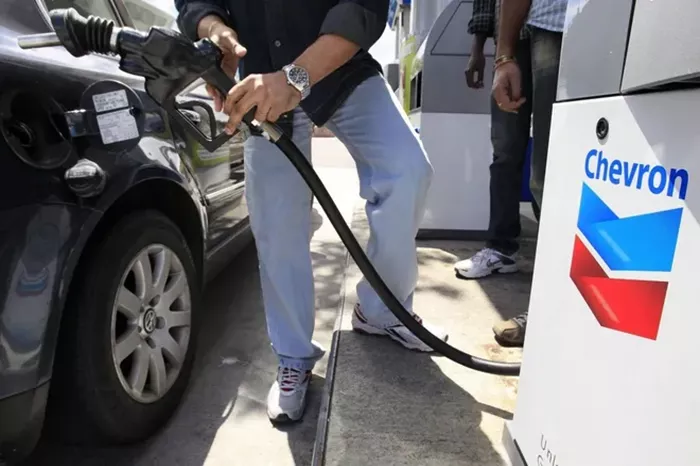Fuel prices are a constant concern for drivers worldwide. Whether you’re commuting to work, embarking on a road trip, or simply running errands, the cost of gasoline can significantly impact your budget. While fuel prices fluctuate due to various factors such as geopolitical events, supply and demand, and economic conditions, there’s a common belief that certain days of the week offer better deals at the pump. In this article, we’ll explore the notion of the best day of the week to buy gas and examine whether there’s any truth to this popular belief.
Analyzing Trends and Myths
Before delving into specific days of the week, it’s essential to understand the factors influencing gas prices. Crude oil prices, refinery production, distribution costs, taxes, and competition among gas stations all contribute to the final price consumers pay at the pump. Additionally, market speculation and geopolitical tensions can cause sudden spikes or drops in fuel prices, making it challenging to predict the optimal time to fill up.
Despite these complexities, many drivers swear by the idea that gas prices tend to be lower on certain days of the week. The most common belief is that prices are lowest early in the week, particularly on Mondays or Tuesdays, before gradually increasing towards the weekend. This theory stems from observations of historical pricing trends and consumer behavior, but does it hold up to scrutiny?
Examining the Data
To determine whether there’s any merit to the notion of a “best day” to buy gas, analysts have studied extensive datasets tracking fuel prices over time. While findings vary depending on the region and specific circumstances, several patterns have emerged from these analyses.
One study conducted by GasBuddy, a leading provider of real-time fuel prices, examined gas price data from various U.S. states over several years. The analysis found that Mondays and Tuesdays did indeed tend to offer slightly lower average gas prices compared to other days of the week. The rationale behind this trend is that gas stations often adjust their prices early in the week to attract customers and remain competitive. However, the difference in prices between weekdays was typically minimal, amounting to just a few cents per gallon on average.
Another factor to consider is the impact of weekend travel on gas prices. Many consumers fill up their tanks before embarking on weekend getaways or road trips, leading to increased demand and potentially higher prices on Fridays and Saturdays. Conversely, Sundays often see a decrease in demand as travelers return home, which could contribute to lower prices on Mondays.
Regional Variations and Exceptions
While the Monday-Tuesday trend holds true for many regions, it’s essential to recognize that gas prices can vary significantly based on location and market conditions. Factors such as state taxes, distance from refineries, and local competition among gas stations all influence pricing dynamics.
In some areas, particularly rural or remote regions with fewer competing gas stations, prices may remain relatively stable throughout the week due to limited options for consumers. Conversely, urban areas with a higher concentration of gas stations and greater competition may experience more pronounced fluctuations in prices.
Additionally, unforeseen events such as natural disasters, refinery outages, or sudden changes in crude oil prices can disrupt typical pricing patterns, rendering generalizations about the best day to buy gas less reliable.
See also: Best 5 Gasoline Companies
Tips for Saving on Fuel Costs
While the notion of a single “best day” to buy gas may be subject to debate, there are several strategies drivers can employ to save money on fuel costs regardless of the day of the week:
Use Price Comparison Apps: Smartphone apps like GasBuddy, Waze, and AAA allow users to compare gas prices at nearby stations in real-time, enabling informed purchasing decisions.
Leverage Rewards Programs: Many gas stations offer loyalty programs or credit card partnerships that provide discounts or cashback rewards on fuel purchases.
Practice Fuel-Efficient Driving Habits: Maintaining proper tire pressure, avoiding aggressive acceleration and braking, and reducing idling can improve fuel efficiency and extend the time between fill-ups.
Consider Alternative Transportation: Exploring options such as carpooling, public transit, biking, or walking for shorter trips can reduce reliance on personal vehicles and minimize fuel expenses.
Plan Ahead: When embarking on longer journeys, plan your route to include gas stations with competitive prices along the way, avoiding the need to refuel at premium-priced locations.
Conclusion
While the concept of a specific “best day” to buy gas may have some basis in historical pricing trends, its significance in today’s dynamic fuel market is debatable. While Mondays and Tuesdays may offer slightly lower prices on average in many areas, other factors such as regional variations, market dynamics, and unforeseen events play a significant role in determining fuel prices.
Ultimately, drivers can optimize their fuel spending by staying informed, adopting fuel-efficient driving habits, and taking advantage of available discounts and rewards programs. By employing these strategies, motorists can mitigate the impact of fluctuating gas prices and make more informed decisions at the pump, regardless of the day of the week.
Related topics:
What To Do With Old Gasoline In Lawn Mower

